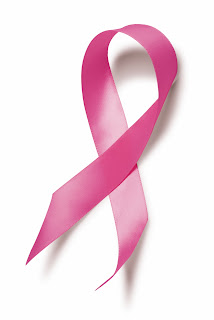October is Breast Cancer Awareness Month and it's been on my mind at lot these last few weeks.
First, no, I do not have breast cancer, but I have reasons to be thinking about it. I was recently sent for genetics testing by my doctor to screen for a specific mutation in the BRCA2 gene. Having that mutation will increase the lifetime risk of breast, ovarian, and prostate cancers. I learned last Wednesday that I have this mutation, it was a 50/50 chance and I lost the coin toss.
What does that mean for me? Well, there's not a lot of data out there on trans women and the mutation, so they really don't know. They know the risk for cis women and for cis men, and so logically place us somewhere in between. Not going to lie though, it scares me. Breast development is one of the most affirming changes we experience from HRT and having finally gotten here, I am scared about the possibility more than I originally wanted to admit to myself.
On the practical front, I'll be added to high risk screening five years after starting HRT, so in 2025. More importantly, my doctor knows and that is a huge part of being safe and cared for. It makes me feel a lot better.
So, why do I bring this up? We don't really talk about this in the trans community, but we really need to be doing that. We need to be taking the same care and caution that our cis sisters take because the risk is real. There are several ways to check on yourself, but it really comes down to knowing your breasts and being aware of changes in them. Hard to fully do as you develop, I understand, but I urge you to get in the habit of knowing them and monitoring them for change. Seriously. It could save you.

Comments
Post a Comment